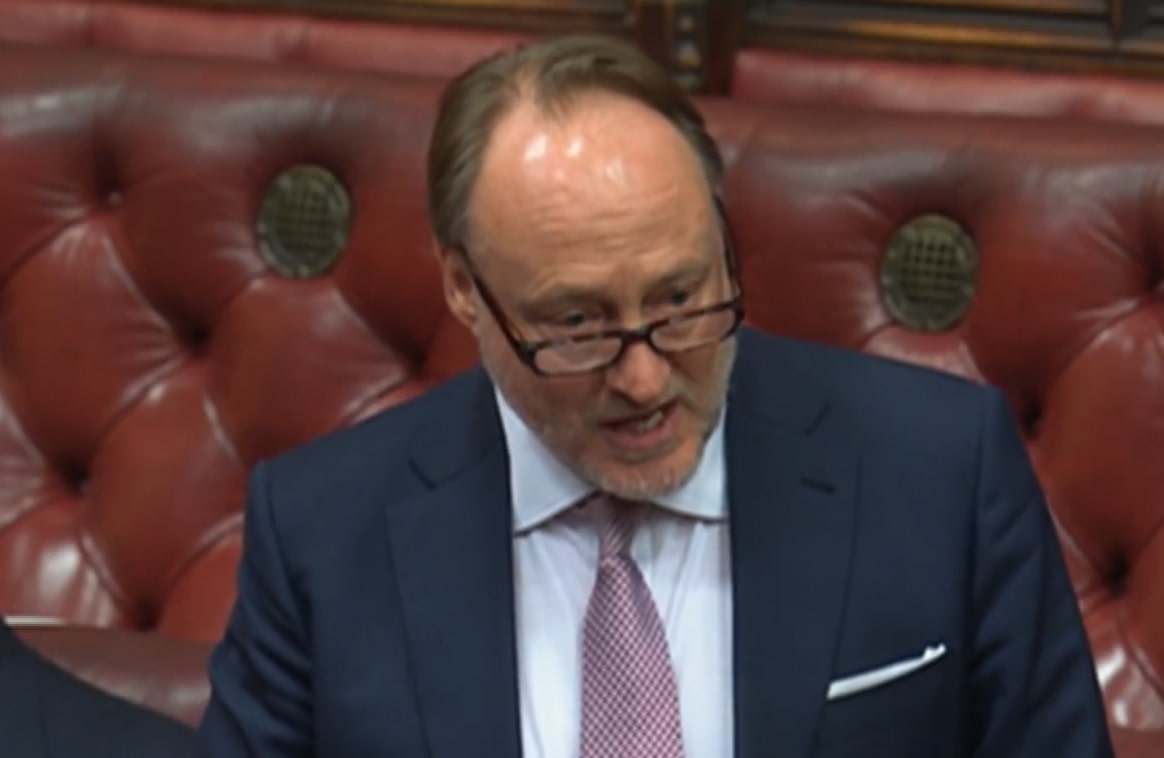The abolition of hereditary peerages in the House of Lords will destroy Britain’s link with the “greatness and drama of our national past”, historian Andrew Roberts has claimed.
Speaking in the chamber as Lord Roberts of Belgravia on Tuesday, the biographer of Winston Churchill and Napoleon criticised the new Labour government’s policy to reform the Lords. Suggesting that the country would suffer from “breaking this living link that we presently have with Britain’s past”, Roberts quoted the 18th-century conservative philosopher Edmund Burke to make his point. “Society is indeed a contract,” he said. “It becomes a partnership not only between those who are living, but between those who are living, those who are dead, and those who are to be born.”
Roberts added: “The hereditary element in this place represents — I hope hereditary peers in this debate will not mind this characterisation — the ‘dead’ part of that contract, for they […] represent their ancestors, whose often glorious deeds have made Britain the country that she is today.”
The historian yesterday referred to the family achievements of several present lords. Of the Labour peer Lord Ponsonby, who has just been made a Parliamentary under-secretary in the Ministry of Justice, Roberts said: “[W]e see the shade of his great-great-great-grandfather, Major General Sir Frederick Ponsonby, whose charge of the 12th Light Dragoons helped save the Union Brigade at a critical moment of the Battle of Waterloo — which, of course, was won by the ancestor of another of our present-day Members of this House, the noble Duke, the Duke of Wellington.”
He spoke of Lord Thurso’s grandfather, the Liberal politician Sir Archibald Sinclair, who in May 1940 put aside party differences to elect Winston Churchill as prime minister. The eighth Duke of Montrose was also in attendance; the first Duke, James Graham, was crucial to the signing of the Act of Union in 1707. “We are surrounded by ghosts in this chamber,” Roberts said. “But they are the ghosts of the great.”
Keir Starmer has made no secret of his wish to reform the Lords, although he has moderated his position over time: as recently as 2022, he promised to abolish the institution to “restore trust in politics”. His criticism was that the Conservative Party used the Lords to reward “lackeys and donors”. There is no such process for hereditary peers, even though they are often associated with particular political parties.
Starmer continues the legacy of former prime minister Tony Blair, whose eponymous institute is deeply influential among Labour politicians and special advisors. In 1999, Blair passed the House of Lords Act which almost halved the membership from 1,330 in October 1999 to 669 in March 2000, leaving just 92 hereditary peers.
Roberts concluded by referring to Burke again. “‘[T]he age of chivalry is gone,” he quoted. “That of sophisters, economists, and calculators has succeeded’.” He continued: “I hope that, when the time comes to say farewell to the hereditary peers, we will do so full of genuine gratitude for the centuries of service that they and their families have given this House and this country.”











Join the discussion
Join like minded readers that support our journalism by becoming a paid subscriber
To join the discussion in the comments, become a paid subscriber.
Join like minded readers that support our journalism, read unlimited articles and enjoy other subscriber-only benefits.
Subscribe